
IIT Jammu - M.Tech. in VLSI Design (Executive)
Backed by India’s Semiconductor Mission. Built for Long-Term Career Growth.
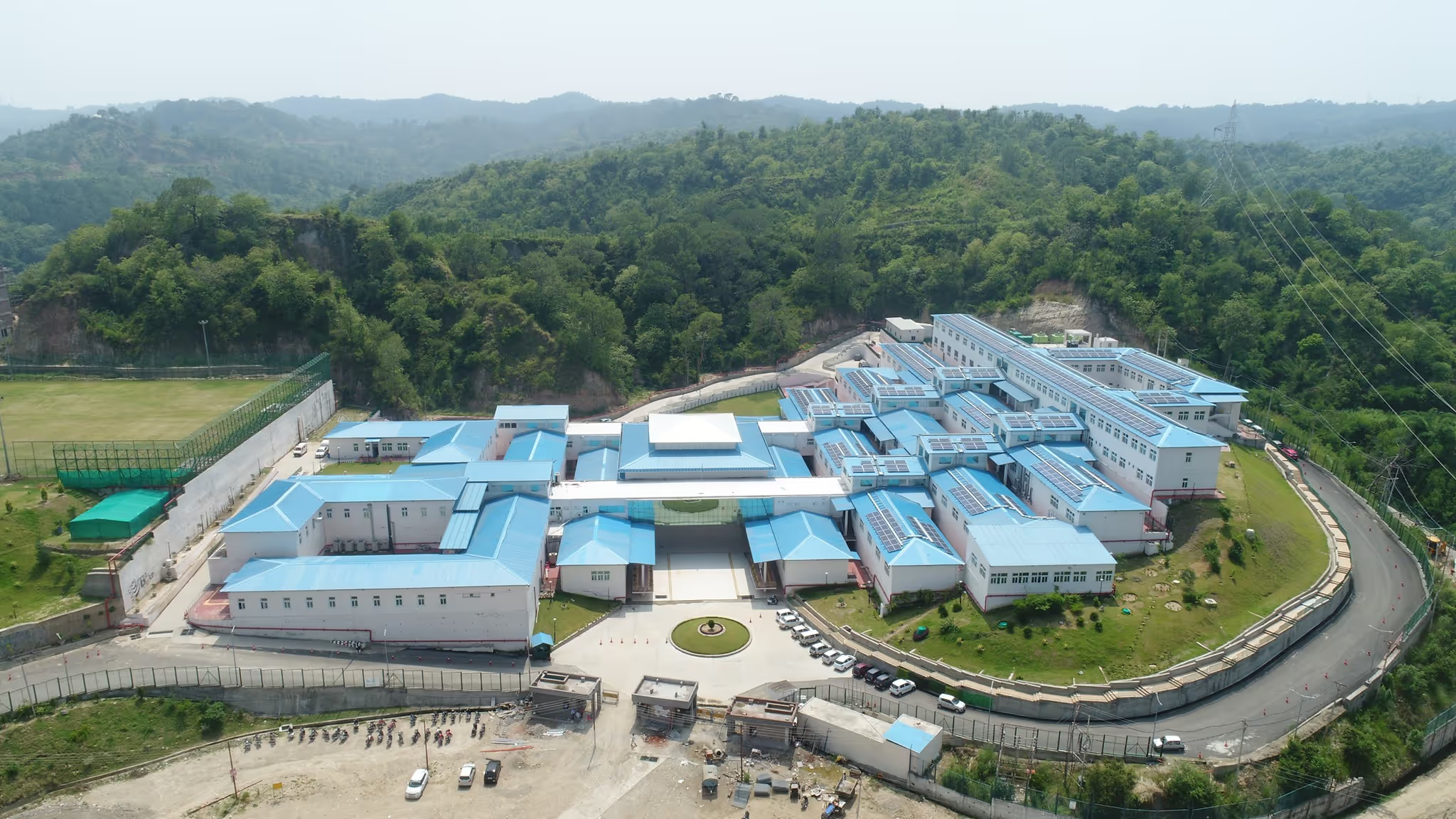
Start Date
February 2026 (Tentative)
Duration
24 Months
Course Fee
₹4.49L
No. of seats left
12
Application Deadline
20th February, 2026
Course Credits
18
Top Companies Actively Hiring VLSI Design Engineers
They are working at companies which are a dream for most





















Program Highlights
The Chip Crisis That Sparked India’s Biggest Tech Mission
This program is built to power India’s semiconductor revolution, empowering next-generation chip leaders to drive it forward.
About IIT Jammu
Founded in 2016, IIT Jammu represents the new face of India’s engineering future. With a strong focus on outcomes and industry readiness, it is fast becoming a national force in semiconductor education. Its VLSI program is powered by state-of-the-art facilities like cleanrooms, electron microscopes, and real-time fabrication labs. Students gain hands-on experience with top EDA tools and future-facing domains like AI, 5G, and automotive electronics. Located in a region being pitched for semiconductor expansion, IIT Jammu is not just teaching chip design, it is shaping India’s next-generation talent for the country’s most strategic tech mission.

Director | Prof. Manoj Singh Gaur
Prof. Manoj Singh Gaur, the founding Director of IIT Jammu, holds a PhD from the University of Southampton and brings over 30 years of academic leadership. A strong proponent of India’s semiconductor self-reliance, he has led IIT Jammu’s rapid rise with a clear focus on advanced research, national relevance, and outcome-driven education.
Under his leadership, the institute launched the “Silicon Valley North” initiative, aimed at transforming Jammu into a strategic semiconductor hub through a 50-acre chip park, world-class fabrication labs, and workforce development.
Dr. Kankat Ghosh | Assistant Professor |Electrical Engineering Departmen
Dr. Kankat Ghosh is an Assistant Professor in the Electrical Engineering Department at the Indian Institute of Technology Jammu, India. He completed his Ph.D. in Electrical Engineering from IIT Bombay, and holds an M.Tech. in Radio Physics and Electronics and a B.Sc. (Hons.) in Physics from the University of Calcutta.His research focuses on III-Nitride based optoelectronic devices, including thin film deposition, nanoelectronics, and semiconductor device modeling. He works extensively on Al(In)GaN/GaN heterostructures for IR and THz applications, with relevance to quantum cascade lasers and photodetectors.Dr. Ghosh has published over 40 research papers and has received the INSA Visiting Scientist Fellowship for 2024-25. He is actively involved in collaborative academic initiatives and maintains strong engagement in research and development in advanced semiconductor technologies.
Program Director | Prof. Ambika Prasad Shah
An expert in radiation-hardened circuit design and low-power VLSI systems, Prof. Ambika Prasad Shah brings deep domain expertise to the M.Tech in VLSI program. With 90+ research papers and multiple patents, his work on soft error mitigation and secure chip design has earned global recognition. At IIT Jammu, he leads the VLSI program with a focus on hands-on learning, industry-grade tools, and real-world deployment, training the next generation of semiconductor engineers who are ready from day one.
The Complete Blueprint for India’s Next-Gen VLSI Leaders
Build Intelligent Systems for Real-World VLSI Applications
Master advanced VLSI workflows with direct relevance to AI, 5G, IoT, and automotive systems.
Gain Hands-On Experience with Industry-Standard Tools
Train on tools like Cadence Innovus, Synopsys VCS, and Vivado—used by global leaders like Intel and Qualcomm.
Apply Your Learning Through Capstone Projects
Solve real-world problems through a 12-credit capstone project, backed by faculty and industry mentorsility.
Learn From India’s Leading Semiconductor Faculty
Be mentored by IIT Jammu’s top VLSI experts—who’ve published 90+ research papers, developed India’s first radiation-hardened SRAM, and lead live DRDO and Cadence-backed projects.
Earn Executive M.Tech Degree With Full IIT Jammu Alumni Status-No GATE required
Get a formal M.Tech degree from IIT Jammu and receive executive alumni privileges—including access to the institute’s industry network, alumni base, and exclusive events.
Experience Two Immersive Campus Visits at IIT Jammu
Join two 5–7 day on-campus immersions every year to interact with professors, collaborate with peers, and work on chip-building simulations in real lab settings.
Attend Expert-Led Masterclasses Curated via IIT & Top Industry Leaders
Gain insights through live masterclasses by experienced professionals from top semiconductor companies..
Study in a Fully Hybrid Format Without Leaving Your Job
Weekend-only sessions, spread across live online lectures and self-paced learning.
Created by IIT Jammu faculty with VLSI experts and senior Futurense Leadership Council members
(Total: 60 Credits | Duration: 24 Months | Includes Dissertation & Campus Immersions)
Semester 1: Building the Foundations
Semester 1: Building the Foundations
No.
Topic Details
Semester 2: From Circuits to Systems
Semester 2: From Circuits to Systems
No.
Topic details
Semester 3: Customization & Research Begins
Semester 3: Customization & Research Begins
No.
Topic details
Semester 4: Deep Research & Specialization
Semester 4: Deep Research & Specialization
No.
Topic details
Elective Courses (Select as per career track)
Elective Courses (Select as per career track)
- Low Power Circuits and Systems
- Physics of Transistors
- Reliability of VLSI Circuits
- Test & Verification of SoCs
- Embedded System Design
- Semiconductor Devices for High Frequency
- Computer Architecture
- Cyber-Physical Systems
- Mixed Signal Circuit Design
- Compact Modeling of Semiconductor Devices
- MOS Device Modeling
- Digital VLSI Architecture Design
- Design for Manufacturability of VLSI Circuits
- Intelligent Systems with VLSI
- VLSI for Automotive Electronics
- VLSI Design in IoT Systems Design
- IC Design with Networking Protocols
🧪 Hands-On Tools Covered
- For VLSI Design & Verification: Synopsys, Cadence
- For FPGA Design: Vivado
- For Simulation & Layout: Mentor Graphics, ASIC flow tools
Research & Dissertation
In Semesters 3 & 4, students work on advanced semiconductor innovation research mentored by IIT Jammu faculty—building original work in VLSI applications, design, or systems.

While mastering 20+ tools
Core Technical Skills
- RTL Coding (Verilog, VHDL)
- CMOS Circuit Design
- Analog & Digital IC Design
- ASIC Design Flow & Synthesis
- Floorplanning, STA (Static Timing Analysis)
- Power & Timing Optimization
- Design for Testability (DFT)
- Physical Design & Place-and-Route
- Mixed-Signal Design
- Verification with SystemVerilog/UVM
- Semiconductor Process Awareness
- Low-Power VLSI Design Techniques
Advanced Specializations
- Intelligent Systems Integration
- VLSI for Automotive Electronics
- VLSI for IoT Systems
- Cyber-Physical Systems (CPS)
- Reliability Engineering
- Embedded System Design
- AI & ML in VLSI (select electives)
Industry Tools & Platforms
- Synopsys VCS, Design Compiler – RTL simulation & synthesis
- Cadence Innovus, Virtuoso – Physical Design & Analog IC Design
- Mentor Graphics – Layout & verification
- Vivado – FPGA Development
- Linux, Tcl, Python – Scripting and automation
- EDA Workflows – Full ASIC & SoC development lifecycle
Area of Responsibility
VLSI Design Engineer
RTL coding (Verilog/VHDL), CMOS circuit design, EDA tools (Cadence Innovus), timing/power analysis
₹40 – 60 LPA (mid) • ₹70 – 90 LPA + (senior)
Intel, Qualcomm, Tata Elxsi
ASIC Design Engineer
SystemVerilog / UVM, low-power design, floorplanning / CTS, DFT (scan insertion)
₹45 – 70 LPA (mid) • ₹80 – 110 LPA + (senior)
NVIDIA, AMD, Samsung
Physical Design Engineer
Place-and-route optimisation, DRC/LVS closure, Tcl/Python scripting, 3D-IC packaging
₹50 – 75 LPA (mid) • ₹90 – 120 LPA + (senior)
TSMC, Micron, GlobalFoundries
AI Hardware Architect
Neural-network accelerator design, tensor-core optimisation, HBM integration, chiplets/wafer-scale engineering
₹80 L – 1.2 Cr (mid/senior) • ₹1.5 – 2 Cr + (architect)
Cerebras, Groq, Tesla
Automotive SoC Engineer
ISO 26262 functional safety, automotive Ethernet/IP, thermal simulation, AEC-Q100 qualification
₹1.0 – 1.8 Cr (experienced) • ₹2 – 3 Cr + (senior)
Bosch, Continental, Tata Motors
DFT Engineer
MBIST/Scan compression, JTAG/IJTAG protocols, silicon bring-up/debug, yield analysis
₹45 – 70 LPA • ₹80 – 95 LPA + (senior)
ASE Group, Amkor
Verification Engineer
SystemVerilog/UVM, formal property checking, coverage-driven methodology, emulation (Palladium/Zebu)
₹50 – 75 LPA • ₹85 – 110 LPA + (senior)
Cadence, Siemens EDA
EDA Tools Developer
Python/C++, CAD tool development, algorithm optimisation, ML-driven features
₹60 – 90 LPA • ₹1.0 – 1.4 Cr + (senior)
Synopsys, Cadence
Analog/Mixed-Signal Design Engineer
Amplifiers, oscillators, ADCs/DACs, SPICE simulation, mixed-signal integration
₹50 – 80 LPA • ₹90 – 130 LPA + (senior)
TI, NXP, STMicroelectronics
Quantum Hardware Engineer
Cryogenic CMOS design, qubit control/readout circuits, superconducting RF systems, error-correction hardware integration
₹60 – 90 LPA (mid) • ₹1.0 – 1.5 Cr + (senior / research)
IBM Quantum, Intel Labs, ISRO Quantum Tech, DRDO Q-Labs, Rigetti
Chiplet Integration Engineer
2.5D/3D IC packaging, die-to-die interconnect (UCIe), advanced packaging (CoWoS/Foveros), thermal and power delivery co-design
₹70 – 100 LPA (mid/senior) • ₹1.2 – 1.8 Cr + (architect)
Intel Foundry, AMD, TSMC, ASE Group, Apple Silicon
Is this for you?
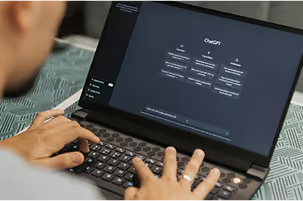


Educational Qualification
Bachelor’s or Master’s degree in:
- Electronics & Communication (ECE)
- Electrical Engineering (EE)
- Electronics & Telecommunication (ETC)
- Computer Science, or Physics
- Or any closely related field
- Mechanical engineering (ME)
Academic Performance
Minimum 60% or 6 CGPA in Under-Graduation or Post-Graduation (55% or 5.5 for candidates with over 10 years of work experience).
Work Experience
Minimum 2 years of full-time, post-qualification work experience is mandatory
Ideal Candidate Profile
- Looking to upskill in VLSI, AI-integrated chip design, and intelligent systems
- Eager to explore careers in semiconductors, automotive electronics, or embedded systems
- Ambitious to build a stable, high-growth career path in one of the world’s fastest-growing sectors
- Comfortable with digital logic, semiconductor fundamentals, or HDL (Verilog/VHDL)—or willing to learn on the go
- Detail-driven thinkers who enjoy working at the intersection of hardware and software
Investment
- One Time Payment - 4.49 Lacs
Consolidated Payment - No refund
Registration Fee : ₹10,000 (Included in the overall program fees) (OR) - Year 1 - ₹3,37,000 (Includes a ₹10,000 registration fee)
Year 2 - ₹1,81,000 - Note: Additional ₹5,000 for each campus immersion.
Examination fees of ₹500 per credit, amounting to ₹17,500 for 35 credits over the entire duration of the program, will be collected directly by IIT Jammu.
Your Step-by-Step Route to IIT Jammu

Step 1
Submit Your Application
Fill out the online application form through the website. Make sure your details and supporting documents are in order.
Step 2
Appear for Pre-Screening Test
Take a 90-minute online test designed to assess your aptitude in logic, electronics, and engineering fundamentals.📄 Sample Test & Mock Link Available Upon Registration
Step 3
Pay Application Processing Fee
₹10,000 (Fully refundable if not selected. Non-refundable post acceptance.)
Step 4
Attend the Screening Interview
Shortlisted candidates will be invited for a 1:1 interview with the academic panel.
Step 5
Receive Your Offer Letter from IIT Jammu
If selected, you will get an official offer of admission from IIT Jammu.
Step 6
Complete Your Payment & Begin the Bridge Course
Pay the program fee or first installment. Start with the Futurense Bridge Course to build strong foundational knowledge before the main program begins.
Step 7
Start Your Executive M.Tech Program
Classes commence in November 01st 2025 (Tentative)—live, online, and backed by two on-campus immersions at IIT Jammu.

We’ve created a focused guide to help you crack the interview like a pro
Begin your journey to India’s semiconductor frontline with IIT Jammu.
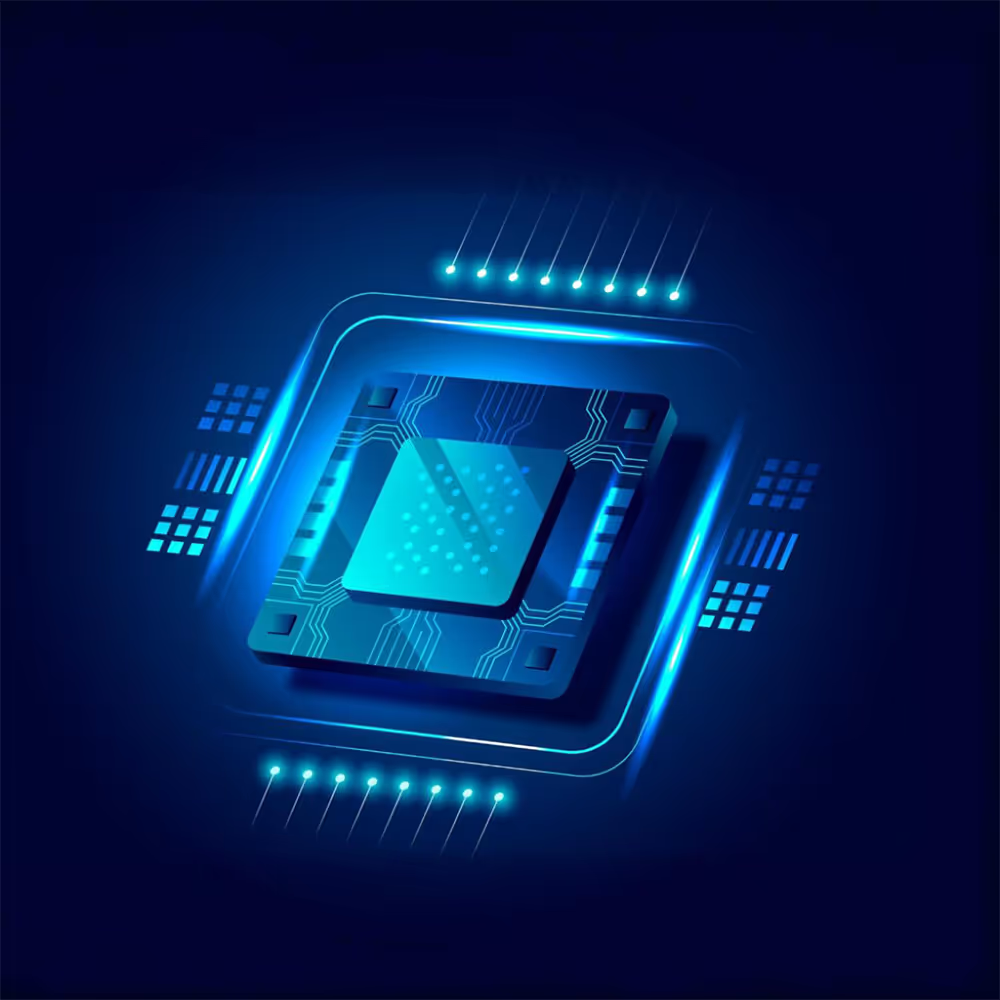
Led by the Futurense Leadership Council (FLC)
Get industry insights and mentorship directly from an exclusive community of AI experts and CXOs from MAANG companies and Fortune 500s.
A V Rahul
Director, Analytics, - Barracuda

Aditya Khandekar
President, Corridor Platforms

Akshay Kumar
Research & Analytics Leader

Alok Tiwari
Director of Analytics, Junglee Games

Anand Das
Chief Digital & AI Officer, TVS Motors

Aneel kumar
Global Chapter Leader - ICSS, DD&T

Anirban Nandi
Head of AI Products & Analytics (Vice President), Rakuten India
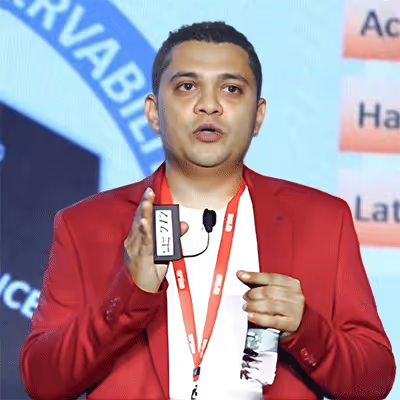
Ankit Mogra
Director – Insights & Analytics, Ather Energy

Anupam Gupta
Independent Consultant – AI/ML Product Development, Amplify Health
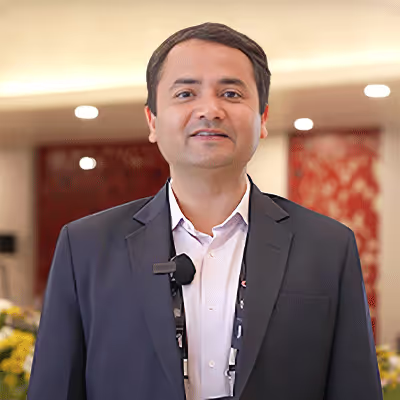
Arpit Agarwal
Data Science Manager, Google

Arvind Balasundram
Executive Director, Commercial Insights & Analytics

Ashish Dabas
Vice President, Capital One

Bhairav M
Senior Manager Data Science and Product Management
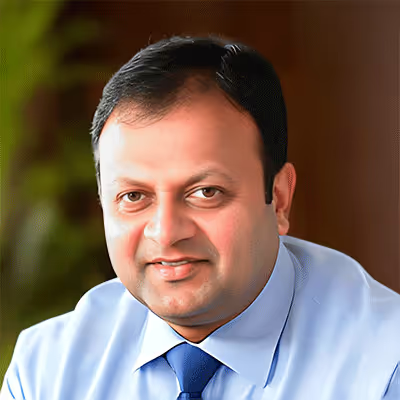
Bhargab Dutta
Chief Digital Officer, Centuryply
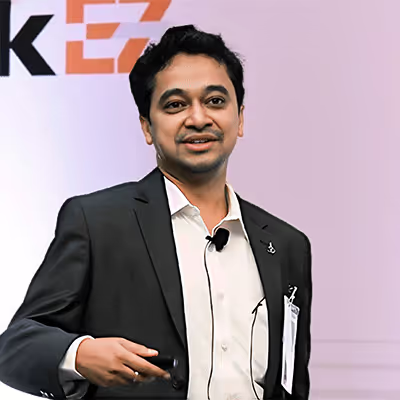
Deepa Mahesh
Head of Strategy & Operations, Board Member

Divesh Singla
SVP, Global Operations Services and Managing Director, India & Philippines, SignantHealth

Indrani Goswami
Director of Analytics, NYKAA

Ishu Jain
Head of Analytics

Kaushik Das
Managing Director, JCPenney

Krithika Muthukrishnan
Chief Data Science Officer, Scripbox

Madhu Hosadurga
Global Vice President, Enterprise AI, Schneider Electric

Madhurima Agarwal
Managing Director - Microsoft for Startups

Monica S Pirgal
Chief Executive Officer, Bhartiya Converge

Muthumari S
Global Head of Data & AI Studio

Nithya Subramanian
Senior Director Data & AI COE - Best Buy
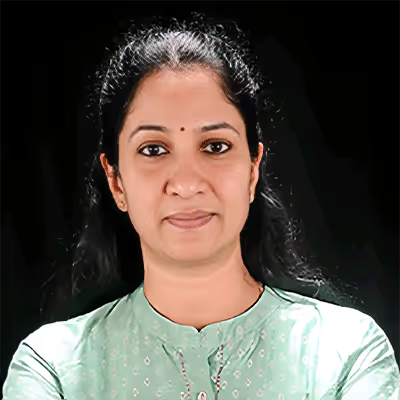
Nitin Srivastava
Global Head of Data and Analytics, Dr. Martens plc

Pankaj Rai
Group Chief Data and Analytics Officer, Aditya Birla Group
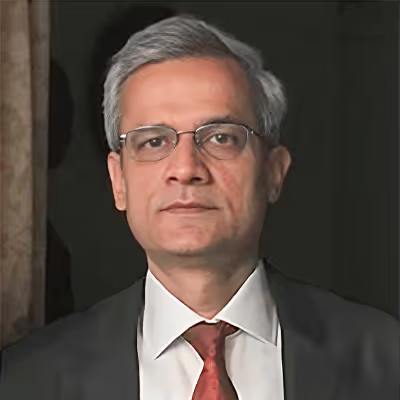
Pankaj Srivastava
Partner, PwC

Praveen Sathyadev
Head - EU/UK Business Growth (VP) - Analytics, Insights and AI, Course5i

Ruchika Singh
Director, Data Science & Insights, Spotify

Satyakam Mohanty
Founder & Managing Partner, Wyser

Saurabh Agarwal
Chief Executive Officer

Saurabh Kumar
Director - Data Engineering

Sharmistha Chaterjee
Executive Engineering Manager - Head of Software and Systems Engineering, Commonwealth Bank

Shirsha Ray Chaudhuri
Director of Engineering

Srini Oduru
Head of IT Delivery and Operations, Cervello India

Sulabh Jain
Chief Analytics Officer

Sumon Mal
Head of Backend Engineering, Sony LIV

Supria Dhanda
Co-Founder & Managing Partner, Wyser

Swati Jain
Partner - Digital, AI & Analytics, Deloitte

Tushar Chahal
Chief Technology Officer, Numisma Bank

Tushar Sahu
Director Engineering, Google

Vidhi Chugh
AI Executive | Microsoft MVP

Vishal Nagpal
Director of Data and AI at Best Buy

Vishal Nagpal
Director of Data and AI at Best Buy

Vidhi Chugh
AI Executive | Microsoft MVP

Tushar Sahu
Director Engineering, Google

Tushar Chahal
Chief Technology Officer, Numisma Bank

Swati Jain
Partner - Digital, AI & Analytics, Deloitte

Supria Dhanda
Co-Founder & Managing Partner, Wyser

Sumon Mal
Head of Backend Engineering, Sony LIV

Sulabh Jain
Chief Analytics Officer

Srini Oduru
Head of IT Delivery and Operations, Cervello India

Shirsha Ray Chaudhuri
Director of Engineering

Sharmistha Chaterjee
Executive Engineering Manager - Head of Software and Systems Engineering, Commonwealth Bank

Saurabh Kumar
Director - Data Engineering

Saurabh Agarwal
Chief Executive Officer

Satyakam Mohanty
Founder & Managing Partner, Wyser

Ruchika Singh
Director, Data Science & Insights, Spotify

Praveen Sathyadev
Head - EU/UK Business Growth (VP) - Analytics, Insights and AI, Course5i

Pankaj Srivastava
Partner, PwC

Pankaj Rai
Group Chief Data and Analytics Officer, Aditya Birla Group

Nitin Srivastava
Global Head of Data and Analytics, Dr. Martens plc

Nithya Subramanian
Senior Director Data & AI COE - Best Buy

Muthumari S
Global Head of Data & AI Studio

Monica S Pirgal
Chief Executive Officer, Bhartiya Converge

Madhurima Agarwal
Managing Director - Microsoft for Startups

Madhu Hosadurga
Global Vice President, Enterprise AI, Schneider Electric

Krithika Muthukrishnan
Chief Data Science Officer, Scripbox

Kaushik Das
Managing Director, JCPenney

Ishu Jain
Head of Analytics

Indrani Goswami
Director of Analytics, NYKAA

Divesh Singla
SVP, Global Operations Services and Managing Director, India & Philippines, SignantHealth

Deepa Mahesh
Head of Strategy & Operations, Board Member

Bhargab Dutta
Chief Digital Officer, Centuryply

Bhairav M
Senior Manager Data Science and Product Management

Ashish Dabas
Vice President, Capital One

Arvind Balasundram
Executive Director, Commercial Insights & Analytics

Arpit Agarwal
Data Science Manager, Google

Anupam Gupta
Independent Consultant – AI/ML Product Development, Amplify Health

Ankit Mogra
Director – Insights & Analytics, Ather Energy

Anirban Nandi
Head of AI Products & Analytics (Vice President), Rakuten India

Aneel kumar
Global Chapter Leader - ICSS, DD&T

Anand Das
Chief Digital & AI Officer, TVS Motors

Alok Tiwari
Director of Analytics, Junglee Games

Akshay Kumar
Research & Analytics Leader

Aditya Khandekar
President, Corridor Platforms

A V Rahul
Director, Analytics, - Barracuda



Success Stories
Frequently Asked Questions
We know you might have some questions before getting started in our platform
What is M.Tech in VLSI Design (Executive) program all about?
Our Executive M.Tech in VLSI program combines VLSI Design with Artificial Intelligence and Intelligent Systems. It's all about preparing students to be creative at the crossroads of hardware and the latest AI tech. It covers advanced topics like CMOS Digital Design, Analog Integrated Circuit Design, Microelectronics, VLSI Fabrication Technology, ASIC Design Flow, and the application of AI in enhancing semiconductor technologies.
Why is M.Tech in VLSI Design (Executive) program significant today?
In today's world, AI is changing the game, however this need hardware to work on , that hardware is design and fabricated using VLSI Technology. Our integrated approach gives professionals the know- how to create clever, effective VLSI systems. And right now, the demand for AI-powered solutions is soaring in consumer electronics, automation, and IoT. So, mastering in this field now sets you up for success.
How does M.Tech in VLSI Design (Executive) program differ from other technology programs?
Our program stands out because it blends two different worlds: VLSI's hardware focus and AI's software perspective. It's a unique mix that's perfect for anyone who wants to lead the way in smart electronics, and using AI in hardware design. We're all about giving you the skills you need to make ground-breaking innovations.
Who is eligible for the M.Tech in VLSI Design (Executive) program?
Eligibility for our program is open to graduates who have a solid background in electronics, electrical
engineering, or computer science, and who are interested in using AI to enhanceVLSI design. This
program is especially tailored for individuals aiming to advance their skills in both developing and applying
intelligent microchip technologies.
BE/B.Tech/M.Sc. in ECE, EE, ETC, CSE, ME, Physics, or a related field.
Minimum 60% or 6 CGPA in Under-Graduation or Post-Graduation (55% or 5.5 for candidates with
over 10 years of work experience).
Minimum 2 years of full-time work experience is required.
When does the application process for the M.Tech in VLSI Design(Executive) program?
The application process for the M.Tech in VLSI Design (Executive) program is now open! There are limited seats available, apply now to secure your spot!
What is the program's fee, and what financing options are available?
The program fee is ₹1.40 lakhs + 18% GST.
Loan option includes a 5–10% subvention for eligible students
Campus immersion (optional): ₹5,000 + taxes
Is there a selection process?
Yes. Admission to the program requires clearing a pre-screening exam and meeting the eligibility criteria
What are the documents to be submitted for application?
While the exact list is not provided for this program, similar IIT Roorkee programs typically require:
1. Application form
2. ID proof
3. Educational certificates (Class 10th, 12th, Graduation)
4. Work experience certificates (if applicable)
5. Passport-size photograph
Note: The same may apply unless otherwise stated
Will there be any pre-screen exams for enrolling in the Program?
Yes. The CyberScreener (IGT) is a 2-hour readiness test with MCQs and coding tasks.
Should I have experience in coding to qualify the pre-screening exam?
No. Programming knowledge is not mandatory, thought having programming knowledge is beneficial. Futurense provides a Bridge Course covering Python basics, prompt engineering, and AI tool usage to help bridge the gap before the actual course commencement
Upon completing this Executive M.Tech degree, will I earn the right to be calledan IITian?
Absolutely, graduates of the M.Tech (Executive) program in VLSI Design from IIT Jammu are proudly recognized as IITians. They become part of a prestigious community of alumni celebrated worldwide for their outstanding achievements and contributions.
Is the M.Tech in VLSI Design from IIT Jammu considered equivalent to other full- time IIT programs in the same field?
Absolutely. The Executive M.Tech program at IIT Jammu is designed to meet the same rigorous academic and research standards as other full-time IIT programs, ensuring a comparable level of excellence and recognition.
Are the courses in this Executive M.Tech program conducted by the faculty from IIT Jammu?
Yes. The Executive MTech in VLSI Design with AI and Intelligent Systems is taught by the distinguished faculty of IIT Jammu, ensuring high-quality education and exposure to cutting-edge research.
Could you explain what Campus Immersion involves in the context of this Executive M.Tech program?
Campus Immersion is a unique component of the program that invites students to experience life on the
IIT campus, live the hostel life, engage in intensive learning sessions with offline students, and connect
one to one with peers and concerned faculty, hands on experience on high end IIT Lab equipment, enriching their educational journey.
For students coming from other states, does IIT Jammu offer hostel accommodations during the Campus Immersion period?
IIT Jammu aims to offer hostel accommodations for outstation candidates during Campus Immersion,depending on availability. We strongly encourage students to plan ahead and make arrangements inadvance to ensure a pleasant and comfortable stay during their time on campus.
Note: Hostel boarding and lodging charges are to be paid by the candidate based on the number of Days hostel facilities are availed.
Is participation in campus immersion mandatory?
Candidates are required to visit the IIT Jammu campus as part of the program. Four slots will beavailable throughout the course duration (two slots each year). Each student must visit the campus once in the first year and once in the second year, choosing from the two available slots each year.
Note: Students will bear their own travel and lodging/boarding expenses for these campus visits.
What are the benefits of attending the campus immersion?
During the immersion, attendees can take advantage of various benefits, including:
Specialized workshops tailored to enhance their skills and knowledge
One-on-one consultations with faculty members for personalized guidance and support.
Networking opportunities to connect with peers and industry experts, fostering valuable relationships
Access to on-campus resources and facilities, providing a conducive environment for learning and collaboration.
Is there an additional cost associated with campus immersion?
Yes, there is an additional fee of ₹5,000 rupees each immersion.
What unique advantages does the M.Tech in VLSI Design (Executive) offer?
1. Join the esteemed IIT Alumni Network: Become part of the globally recognized IIT alumni community, opening doors to endless opportunities.
2. Earn More Than a Certificate: Gain an academic degree that signifies deep expertise and practical knowledge, setting you apart in the industry.
3. Industry-aligned Curriculum: Explore a curriculum designed to meet industry needs, blending core VLSI and AI principles via elective modules curated by IIT faculty.
4. Experience Campus Life: Immerse yourself in a vibrant 3-5 days on-campus journey at IIT Jammu, 30 enriching your educational experience.
5. Guidance from Industry Leaders: Benefit from mentorship provided by seasoned professionals and experts from top tech companies.
What is the admission process for the Executive M.Tech program?
1. Your application documents are carefully reviewed.
2. Appear for a pre-screening test.
3. Pay application fees.
4. Appear in mock interview with Futurense Faculty
5. Your academic, work experience and entrance exam scores are considered during the selection process.
6. Appear in Interview with IIT Jammu Faculty.
7. If selected, you will receive an offer letter from IIT Jammu.
8. Complete the necessary formalities, you will be officially enrolled.
What job roles can participants expect to pursue after completing this program?
Roles include:
1. VLSI Design Engineer
2. ASIC Design Architect
3. Hardware Verification Engineer
4. SoC Design Engineer
5. Signal Processing Engineer
6. Embedded System Developer
7. FPGA Developer
8. AI Hardware Specialist
9. IoT Solution Architect
10. Semiconductor Product Manager
What is the Payment Schedule and Process?
Full fee payment of ₹1.40 lakhs + GST must be completed within 5 days of receiving the offer letter
Can I self-fund this program?
Yes. If you or your family are funding the program, you can choose to self-fund either partially or in full.
Does Futurense help with loans?
Yes. Futurense has partnered with various financial institutes to offer financial assistance
What is the interest rate on the loans?
Interest rates vary depending on the repayment plan and financial partner. Rates are described as reasonable and competitive considering the recent rise in unsecured loan rates in India.
What are the documents I should keep handy?
Student's Documents:
1. PAN
2. Aadhar
3. Last 3 months’ bank statements
Income Documents
Last 3 months’ payslips

















